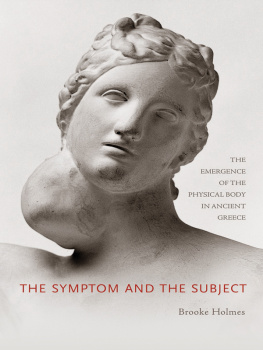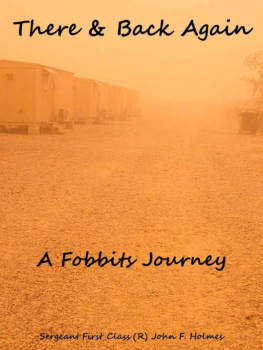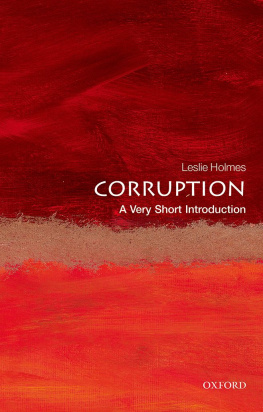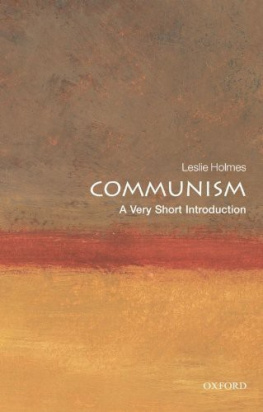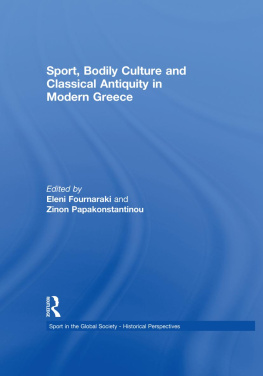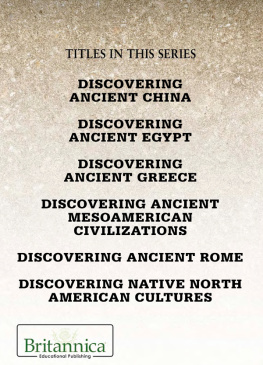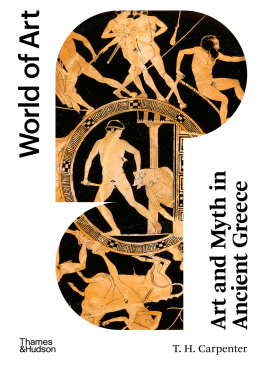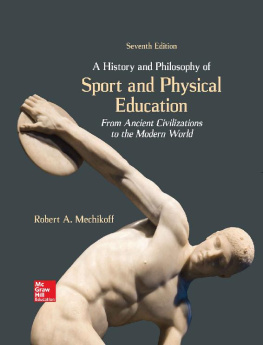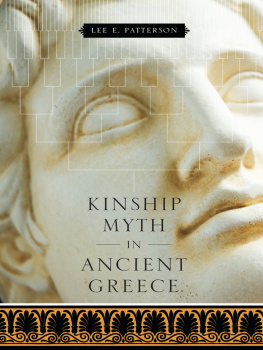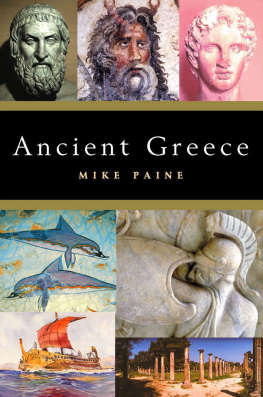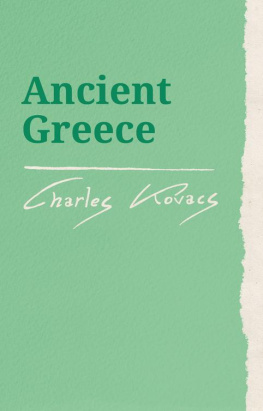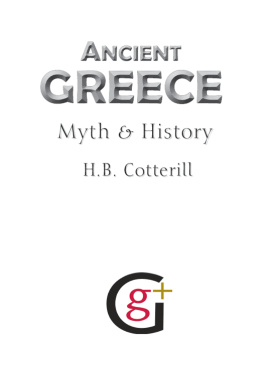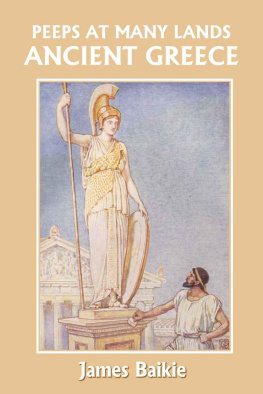Holmes - The symptom and the subject: the emergence of the physical body in ancient Greece
Here you can read online Holmes - The symptom and the subject: the emergence of the physical body in ancient Greece full text of the book (entire story) in english for free. Download pdf and epub, get meaning, cover and reviews about this ebook. City: Greece;Princeton, year: 2010;2014, publisher: Princeton University Press, genre: Science. Description of the work, (preface) as well as reviews are available. Best literature library LitArk.com created for fans of good reading and offers a wide selection of genres:
Romance novel
Science fiction
Adventure
Detective
Science
History
Home and family
Prose
Art
Politics
Computer
Non-fiction
Religion
Business
Children
Humor
Choose a favorite category and find really read worthwhile books. Enjoy immersion in the world of imagination, feel the emotions of the characters or learn something new for yourself, make an fascinating discovery.
The symptom and the subject: the emergence of the physical body in ancient Greece: summary, description and annotation
We offer to read an annotation, description, summary or preface (depends on what the author of the book "The symptom and the subject: the emergence of the physical body in ancient Greece" wrote himself). If you haven't found the necessary information about the book — write in the comments, we will try to find it.
Holmes: author's other books
Who wrote The symptom and the subject: the emergence of the physical body in ancient Greece? Find out the surname, the name of the author of the book and a list of all author's works by series.
The symptom and the subject: the emergence of the physical body in ancient Greece — read online for free the complete book (whole text) full work
Below is the text of the book, divided by pages. System saving the place of the last page read, allows you to conveniently read the book "The symptom and the subject: the emergence of the physical body in ancient Greece" online for free, without having to search again every time where you left off. Put a bookmark, and you can go to the page where you finished reading at any time.
Font size:
Interval:
Bookmark:

The Symptom and the Subject
The Symptom and the Subject
THE EMERGENCE OF THE PHYSICAL BODY IN ANCIENT GREECE
Brooke Holmes
PRINCETON UNIVERSITY PRESS
PRINCETON AND OXFORD
Copyright 2010 by Princeton University Press
Published by Princeton University Press, 41 William Street, Princeton, New Jersey 08540
In the United Kingdom: Princeton University Press, 6 Oxford Street, Woodstock, Oxfordshire OX20 1TW
All Rights Reserved
Library of Congress Cataloging-in-Publication Data
Holmes, Brooke, 1976
The symptom and the subject : the emergence of the physical body in ancient Greece / Brooke Holmes.
p. cm.
Includes bibliographical references and index.
ISBN 978-0-691-13899-2 (hardback : alk. paper) 1. Symptoms. 2. Medicine, Greek and Roman. 3. Human bodyGreece. 4. GreeceCivilization. I. Title.
RC69.H6785 2010
616.047dc22 2009030026
British Library Cataloging-in-Publication Data is available
This book has been composed in Minion Pro
Printed on acid-free paper.
press.princeton.edu
Printed in the United States of America
1 3 5 7 9 10 8 6 4 2
To my mother and my sister, and to the memory of my father
Le symptme, ce serait le rel apparent ou lapparent rel.
Roland Barthes
CONTENTS
PREFACE AND ACKNOWLEDGMENTS
Some years ago I started thinking about the symptom and found I couldnt stop. I set out to write a dissertation about how literary representations of disease were affected by the shift to naturalizing interpretations of the symptom in fifth- and fourth-century medical writing. Yet the more I asked what defined those interpretations against other ways of understanding symptoms, the less satisfied I was with the answers. I got further into the medical texts, and the more I did, the stranger they seemed. What are these texts trying to see and to show? I read and reread the medical writers; I went back to the limited evidence we have for other ways of thinking about the symptom in early Greece to try to understand what was assumed about human beings and unseen threats. Eventually I came to conclude that the medical writers are seeing and showing the physical body, not as an anatomical object or a visible tableau, but as a largely hidden world of fluids, stuffs, flesh, bones, joints, and organs, loosely organized by what some of these writers call a phusis, nature. As I will stress repeatedly, this body, which the Greeks call sma, stands between what anyone can see or touch of a human being and a mostly submerged world created out of semiotic inference and imaginationhence, the central role of the symptom to the book.
The physical body is something new in the late archaic and classical periods. Of course, new is a loaded term when we talk about the Greeks. It lies at the heart of debates that go beyond questions of historical change and epistemic rupture to charged questions about whether the Greeks are like us or completely strange. The easy answer to such questions is that the Greeks are both familiar and foreignbut that answer fails to take us very far. In this book, I defend the idea that, through its emergence in the ancient Greek world as an object of investigation, the physical body comes to change how human beings can be imagined and how they can imagine themselves. I understand this transformation not in terms of a shift from superstition to sudden insight into biological reality. Rather, I see the physical bodys emergence as generative because it encourages a way of thinking about people in physical terms. Much of this book explores the implications of this thinking both inside and outside medicine. These implications continue to be explored in the present, not only in the narrowly circumscribed arena of bioethics but also on the much more expansive ethical terrain that springs up around the problems posed by having a body to being humanhence, the importance of the subject to my project. I hope that this book, in its own way, contributes to these explorations.
This book belongs to a number of different disciplines or subfields, among them classical philology, history (ancient history, the history of medicine, the history of science, the history of ideas, the history of religion), literature and I have also repeatedly become aware of the limits of my knowledge and my expertise. Nevertheless, this book is an attempt to tell a story that acknowledges the different ways of seeing the world that developed in classical Greece, as well as the ways we see today, without losing sight of a body whose power derives from its ambiguous position between physical object and ethical subject.
I have incurred many debts in writing this book. My debt is largest to Froma Zeitlin and Heinrich von Staden, who advised my dissertation, provided unflagging intellectual and emotional support, and have continued to be boundless sources of inspiration over the years. I also owe considerable thanks to Mark Buchan and Andrew Ford, not only for being such incisive readers but also for challenging my thinking along the way while remaining encouraging and good humored.
For years, I have benefited from correspondence and conversations with Jim Porter, who has shaped this project in countless ways. I am particularly grateful to him and to the anonymous reader for the Press for their detailed and insightful comments on an earlier version, which gave me the impetus and the tools I needed to undertake another revision to clarify my aims and ideas. Caroline Bynum not only provided enormously valuable feedback on drafts of the introduction but also helped me see at several key points what really matters in intellectual work. Special thanks are due as well to Maud Gleason, who stepped in during the revision process and kindly convinced me to give the manuscript another go: the final product is much better as a result of her advice, though I am all too aware of how much room for improvement remains. Phiroze Vasunia generously helped the book find its way to a publisher, for which I am very grateful. And I am indebted to Joshua Katz for his careful reading of the first chapters, which saved me from many infelicities and errors. A number of other colleagues have offered valuable feedback on different chapters in the manuscript at its various stages or discussed key concepts, often graciously sharing their expertise to help me navigate new fields. I would like to thank, in particular, Hal Cook, Andrea Falcon, Chris Faraone, Barbara Kowalzig, Roy Laird, Jake Mackey, Ian Moyer, Kalliopi Nikolopoulou, Beate Pongratz-Leisten, Jutta Schicksore, and David Wolfsdorf. While I have not always succeeded in incorporating their suggestions or addressing their concerns, I have benefited enormously from these exchanges. For all the errors and omissions that remain, I take full responsibility.
I am pleased to have the opportunity to acknowledge the support of a number of institutions and foundations over the years of this project. My dissertation research was supported by the Center for Human Values at Princeton University, the Whiting Foundation, the Beinecke Scholarship Program, the Joseph E. Croft 73 Fellowship, and a Mary Isabel Sibley Fellowship from Phi Beta Kappa. Two Spray-Randleigh fellowships and an Arts and Humanities Research grant from the University of North Carolina, Chapel Hill helped me progress beyond the dissertation. And a year as a Mellon Fellow in the School of Historical Studies at the Institute for Advanced Study provided the ideal conditions to undertake the last round of major revisions; I gratefully acknowledge support from both the Institute and Princeton University during that year. The Magie Fund provided crucial support in the projects final stages.
Next pageFont size:
Interval:
Bookmark:
Similar books «The symptom and the subject: the emergence of the physical body in ancient Greece»
Look at similar books to The symptom and the subject: the emergence of the physical body in ancient Greece. We have selected literature similar in name and meaning in the hope of providing readers with more options to find new, interesting, not yet read works.
Discussion, reviews of the book The symptom and the subject: the emergence of the physical body in ancient Greece and just readers' own opinions. Leave your comments, write what you think about the work, its meaning or the main characters. Specify what exactly you liked and what you didn't like, and why you think so.

